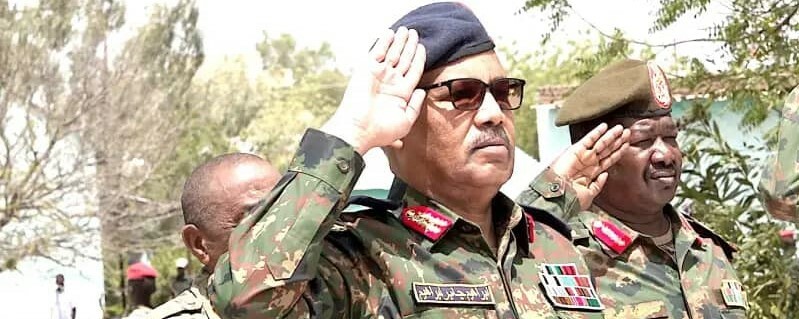Lt. Gen. Ibrahim Jaber, a member of Sudan’s Sovereignty Council, said that the military will not be a party to any political agreement with politicians again.
Addressing soldiers of the army’s 2nd Infantry Division in Gedaref on Monday, Jaber, a senior military general, underscored that there will be a transitional period led by a technocratic government that will arrange the affairs of the Sudanese people and prepare for free and fair elections in which the Sudanese people will choose their leaders.
“The ongoing war is a bigger plan than those who masterminded it. Some foreign elements and political parties caused the war. The Sudanese army will remain the only national army and will not accept any replacement,” he said.
“The interference by external actors has led to the current situation we are experiencing now in Sudan. But I can assure you that Sudan will emerge from this conflict soon,” he added.
The top army general urged the paramilitary Rapid Support Forces (RSF) to adhere to the agreement reached during the peace talks in Saudi Arabia while encouraging the army and the people of Sudan to work for the restoration of peace and stability in the country.
Saudi Arabia and the United States led talks in Jeddah last year to try to reach a truce between Sudan’s army and the paramilitary Rapid Support Forces (RSF), but the negotiations faltered.
The army and the RSF began battling each other in mid-April last year as tensions over plans for a new political transition and restructuring of the military erupted into heavy fighting.
The conflict has driven nearly 8.5 million people from their homes, creating the world’s biggest displacement crisis, pushed parts of the 49-million population close to famine, and triggered waves of ethnically driven killings and sexual violence in the western region of Darfur.
The army, which has recently regained some ground in the capital, shunned an appeal from the UN Security Council for a ceasefire during the Muslim holy month of Ramadan.
The UAE along with some African players have backed the RSF, according to United Nations experts, while US Special Envoy to Sudan Tom Perriello was recently asked about reported Iranian support for the army, which includes Islamist factions that grew strong under former leader Omar Bashir.
“We are hurtling right now towards a situation where more and more actors appear to be getting involved, where we could see a return of extremist elements that the Sudanese people with great courage and over much time had mostly eradicated from the area,” said Tom.




